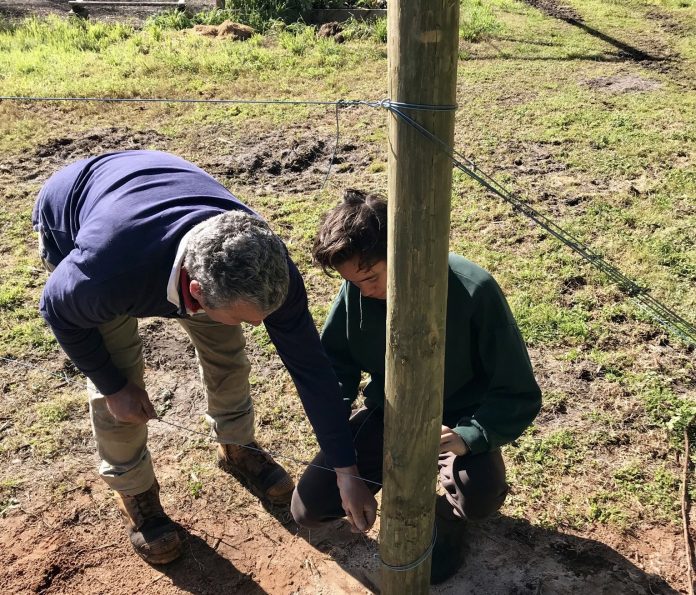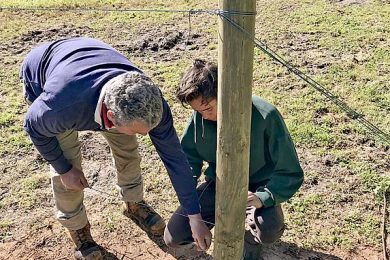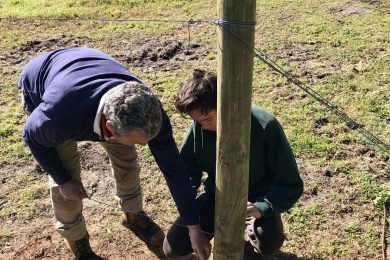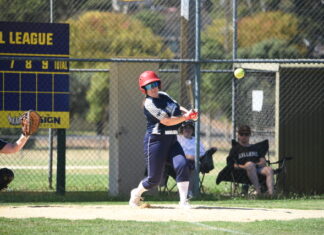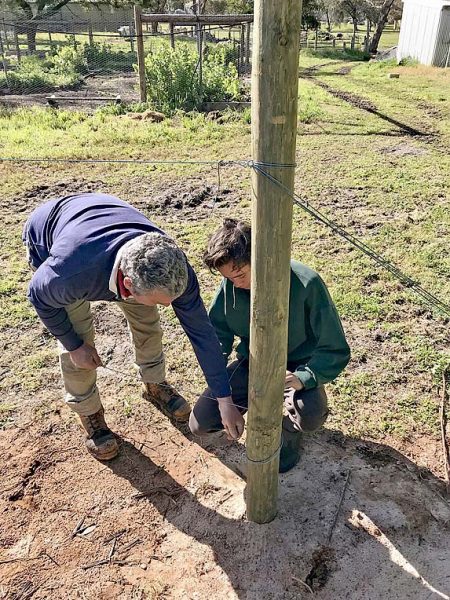
THEY may not be able to legally drink wine, but it has not stopped Kangaroo Inn Area School students from harvesting the grapes to make it.
Under the guidance of their teacher Jack Cunningham, senior school students swapped classrooms for vineyards as part of a combined biology unit focusing on ecosystems and disease, which started last year.
The group of Year 11 students studied grape growing and vineyards from an eco-system perspective, while observing and learning about disease and pest management.
Mr Cunningham said the concept – which involved building a vineyard on the school grounds – aimed to facilitate pathways for students who may be interested in pursuing a career in the region.
“Students started off by de-constructing the inquiry project’s question, which was how to manage a successful vineyard,” he said.
“They looked at different aspects of fencing and irrigation for vineyards and how to successfully grow grapes including nutritional requirements for young grapevines, irrigation needs, pest and disease identification and spray management, training and pruning grapevines.
“They also briefly investigated how to make wine, which is a little bit down the track for us at the moment.”
A Barossa Valley winery donated 40 cabernet sauvignon vines, along with a number of vine guards to construct the vineyard.
Students built five rows to house 60 vines at the school’s agricultural block and completed the fencing and irrigation with the direction of school staff.
“They planted the vines and they have been growing for around three to four months now,” Mr Cunningham said.
“The idea is to make wine, but I think it takes a couple of years to get that first batch of grapes and on the first batch I am not sure you would get that many.
“With 40 vines there should be a substantial amount of wine produced, I’m not sure how much though.”
The current Year 11 students have been handed the gloves for the project and will continue to maintain the vineyard.
“We try to get down there to check on it once a week,” Mr Cunningham said.
“It’s important we make sure there is no visible fungus on there or no pest problems on the leaves because there are various types of beetles.
“Also essentially, because our water is so high in calcium, the drippers get blocked so it is a matter of going down to the ag block and cleaning out the filters every so often.
“We have also laid or first batch of fertiliser for the year.”
The project is funded through a Science Technology Engineering Mathematics development grant, which the school received in 2017.

